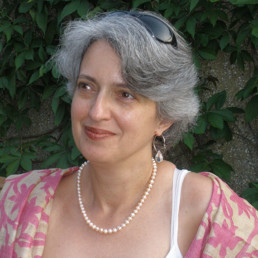A Wider Sense of “Normal”

Written by Artemi Sakellariadis
(she, her) Director, Centre for Studies on Inclusive Education (CSIE)
It all started with a quiet, precious family moment on New Year’s Day: father and son snuggled up on the sofa. Savouring the moment, he took a selfie. Then, in the spur of the moment, he improvised a tongue-in-cheek caption and posted it on twitter.
Then something spectacular happened. First a few responses trickled in, then a few more, then literally hundreds of responses poured in, and within a couple of days the BBC wanted an interview. And then, slowly, posts quietened down and the whole thread now rests in the ether, testament to love, inclusion and a powerful counter narrative of difference.
It seems that everyone who posted in that thread shares a common experience and a remarkable secret. “So terrible being the dad of a learning disabled young man” said the original tweet. In response, countless others posted photos of happy moments with disabled family members, with similar comments.
“Yep, it’s awful” said a father pictured with his son, both grinning unreservedly. “Yes, I find it terrible also…” said another, posting a photo of a precious moment. And on it went: family photos brimming with joy were posted with comments such as: “Untold misery”, “Wouldn’t wish it on anyone….”, “So little to feel joyful about”, “Absolutely horrendous”, “Don’t know how we manage”. And all the while, the father who started this thread was responding to posts with more sarcasm, for example: That looks especially unhappy. / I am so sorry for you. / Continuous pain and misery, I can tell. / No love, no intimacy. / Oh that looks grim. Stuck inside all the time [for an outdoor photo] / No fun at all. / That looks absolutely tragic.
If you thought that the common experience is raising a disabled child, this blog post is especially for you. I cannot see what that would be, as every child and every family are different. I was referring to the common experience of dealing with other people’s misconceptions: regularly coming up against widespread assumptions about how terrible it must be to have a disabled child.
“And the remarkable secret?” I hear you ask. You may have guessed. It is the knowledge that raising a disabled child is not a tragedy. It is remarkable precisely because it is a secret, i.e. not widely known (and that is not because those who know it are not saying it, but because those who do not know it are not listening).
Reading through all these posts reminded me of Emily Perl Kingsley’s “Welcome to Holland” (1987), where she likens the experience of having a disabled child to the experience of planning a holiday in one place (Italy) and finding yourself in another (Holland). She describes how initially you might resent the situation, or the place where you are now (Holland, in the holiday analogy), and how difficult it must be to keep hearing everyone else say what a wonderful time they had in the place of your dreams (Italy, in the holiday analogy). Yet, over time, you realise that you are in a different place, which may be slower-paced and less flashy than where you wanted to be, but it also has things to offer which you would not have found in the place of your dream (for example windmills, tulips and Rembrandt in the holiday analogy). And, she concludes, if you spend your life mourning for a dream you have lost, you may not be able to enjoy the existence you have found.
I often wish that more educators would take the journey which Emily Perl Kingsley describes. It would mean that disabled children are better understood and appreciated for who they are, rather than regularly seen as a poorer version of an imagined alternative self without impairments. Educators may not have harboured dreams for children in the way parents usually do, but this journey would help them see disabled children for who they are; not who they are not.
As I have written elsewhere (2012), being different does not make anyone less worthy and we may need to redefine what we consider “normal”. Instead of referring to what is shared by most people – which is better described as “usual” – I suggest that, if we are to use the word “normal” at all, it refers to the full spectrum of human diversity: everything that is a natural expression of our shared humanity.
You do not have to take my word for it. After all, I am neither disabled nor parent to a disabled child. This writing, like all my work, is from the position of a disabled people’s ally. But do, please, visit this twitter thread and hear this message from all these families who have first-hand experience of living with disability. The original tweet has been liked over 23,600 times and retweeted almost 1,500 times. The full thread can be viewed at https://twitter.com/RoseUnwin/status/1345152389079326721.
REFERENCES
Kingsley, E.P. (1987) Welcome To Holland. Available at: www.emilyperlkingsley.com/welcome-to-holland (accessed January 2021).
Sakellariadis, A.I. (2012) A wider sense of normal? Seeking to understand Pierre Rivière through the lens of autism. Emotion, Space and Society, 5 (4): 269–78, special issue on Pierre Rivière.

